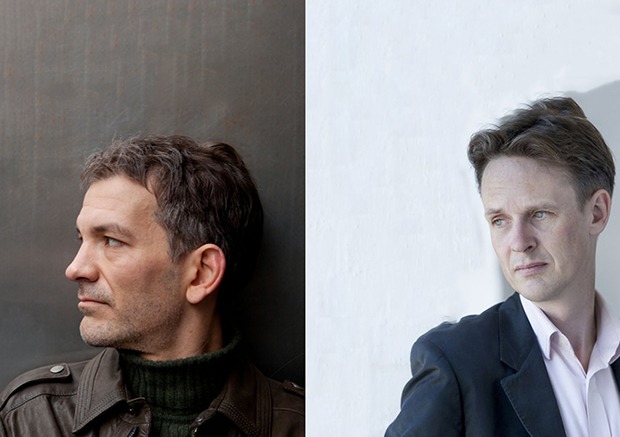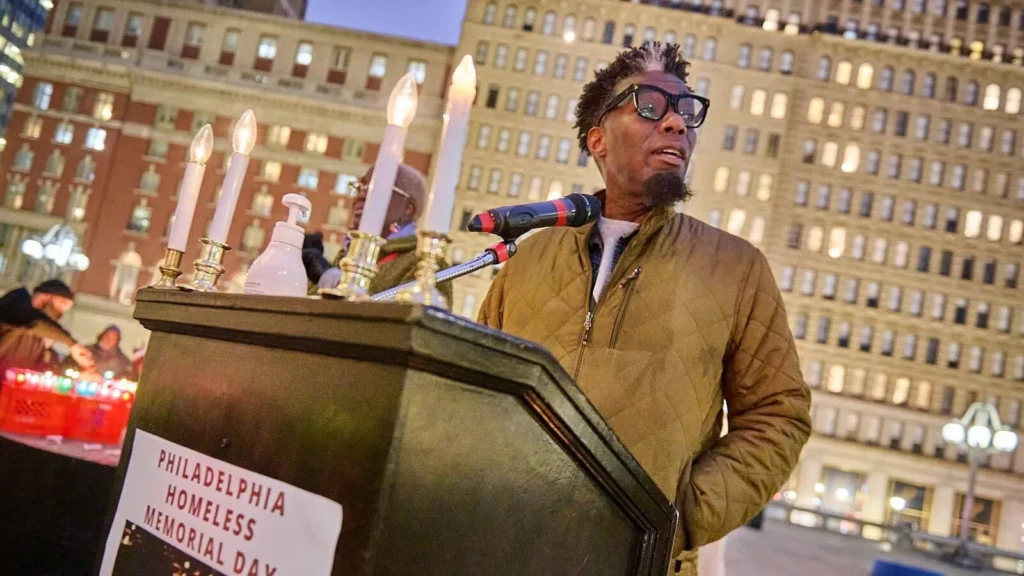Princeton University Concerts presented distinguished tenor Ian Bostridge and famed jazz pianist Brad Mehldau on October 22 on the Richardson Auditorium stage at Princeton University. This occasion marked the eagerly awaited song cycle collaboration by the two men titled The Folly of Desire. The second half of the program was devoted to Mr. Bostridge’s specialty, songs by Robert Schumann, which included the masterpiece Dichterliebe.
Ian Bostridge CBE (born December 25, 1964) needs no introduction having dozens of recordings to his credit, many of them award winners. Sir Ian has appeared over the years with every illustrious orchestra and is renowned for his interpretive powers. He is a graduate of both Cambridge and Oxford. At Oxford, he taught Political Theory and History. In 1992, Sir Ian married Lucasta Miller, and they have a son and daughter. He started to sing in 1992 to great acclaim, and became a full-time singer in 1995 at age 30. This reviewer has experienced several of his live performances over the years in New York City, and these ears have listened with pleasure to countless hours of his recordings.
Brad Mehldau (born August 23, 1970) is an internationally famous artist who incorporates pop, rock, jazz, and classical elements into his pianism and composing and is especially renowned as a master of improvisation. He has been nominated for several Grammy Awards. His press materials have likened him to be of an equal brilliance to Johann Sebastian Bach. Mr. Mehldau is married and has three children.
The Folly of Desire is Mr. Mehldau’s and Mr. Bostridge’s collaboration bringing a fresh, 21st century approach to the creation of a new song cycle using poems from William Blake, William Shakespeare, William Butler Yeats, Bertold Brecht, Goethe, W.H. Auden, and e.e. cummings. The program carried this caveat: “Please note: Some of the texts of The Folly of Desire contain explicit, adult language.” Indeed, Mr. Bostridge spoke before the recital reading the translation of the Brecht piece stating that it was considered to be too rude for translation, so he read the translation to us. The poem deals with sodomizing an angel and being rough about it. Indeed, the other poems dealt with Leda and the Swan, where Zeus raped Leda in the aspect of a swan, and two poems addressed Ganymede, the handsome youth carried off by Zeus in the aspect of an eagle to be his lover. Poet e.e. cummings had what was perhaps the rudest poem of the evening, the boys I mean are not refined. According to the poet, these are boys who go with girls who are humped “thirteen times a night,” while hanging a hat on one girl’s tit, or “carves a cross on her behind” while not giving “a shit for wit.” The girls are also said to “masturbate with dynamite.” An ecumenical lot of ideas to work with to be sure, but there seemed to be little thought put into anything but cold, intellectual investigation into the analysis of desire in the song cycle. There could have been some fun with some of the lyrics, but there wasn’t so much as a crack of a smile the entire piece. Nope. No humor or wit was anywhere to be seen. It existed as a daunting challenge to titillate and display how very clever it could be as musical references to other genres and composers were tossed off between the often loud droning at the piano. The singing ranged from breathless screeches to falsetto to whispers, usually with little rhyme or reason. Mr. Bostridge’s modest voice was often overpowered by Mr. Mehldau’s juggernaut pianism.
From the outset of Robert Schumann’s masterpieces, Mr. Mehldau proved that he needed to be reminded that he wasn’t playing solo, so keenly unaware of the fact that he was supposed to accompany Mr. Bostridge. One wished for a more sensitive, expert accompanist, such as the estimable Julius Drake, often a collaborator with Mr. Bostridge. Mr. Mehldau’s Schumann lacked grace and refinement. To Mr. Bostridge’s credit, he sang all of Dichterliebe plus four additional Schumann songs after the telling trial of The Folly of Desire.
Surprisingly, both artists returned at the evening’s published conclusion to present several encores. One encore included a song from Noel Coward’s Cavalcade. Undoubtedly, Mr. Bostridge drew from his 2002 recording experience with Jeffrey Tate, The Noel Coward Songbook. Ironically, it was during these encores that Mr. Mehldau shone brightest. He is gifted with amazing powers. His improvisations were brilliant. It’s all the more a pity that it took so long for them to come to the audience’s attention.
This evening’s recital will be repeated at New York’s Carnegie Hall and at select international venues.
Princeton University Concerts produces a range of experiences throughout the year. For more information about future offerings, visit www.princetonuniversityconcerts.org .








